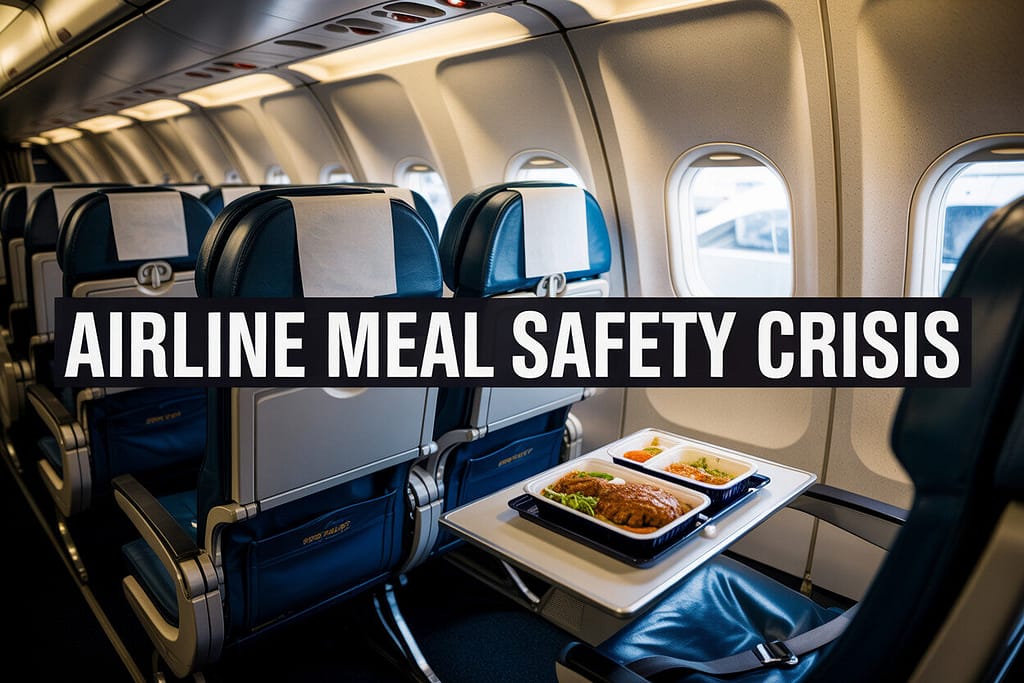
Qatar Airways Vegetarian Passenger Chokes To Death After Being Told To 'Eat Around' Meat-Based Meal
A tragic Qatar Airways vegetarian meal incident has sparked a wrongful death lawsuit after 85-year-old cardiologist Dr. Asoka Jayaweera died following an in-flight medical emergency. The California-based doctor, who had pre-ordered a vegetarian meal for his 15-hour flight from Los Angeles to Colombo, was told to “eat around” the meat when no vegetarian options were available – a decision that led to fatal consequences when he began choking.
This devastating case highlights critical gaps in airline safety standards and emergency response protocols that affect millions of passengers with dietary restrictions. For travelers, airline industry professionals, and anyone concerned about passenger safety, this incident reveals how a seemingly simple meal mix-up can escalate into a life-threatening situation.
We’ll examine the fatal sequence of events that led to Dr. Asoka Jayaweera’s death and the airline’s emergency response failures that may have contributed to the tragedy. The article will also cover the ongoing wrongful death airline lawsuit and what it means for Qatar Airways’ accountability, plus explore how this fits into a broader pattern of the airline’s struggles with dietary restriction failures and what the aviation industry must do to prevent similar tragedies.
The Fatal Incident: What Happened to Dr. Asoka Jayaweera
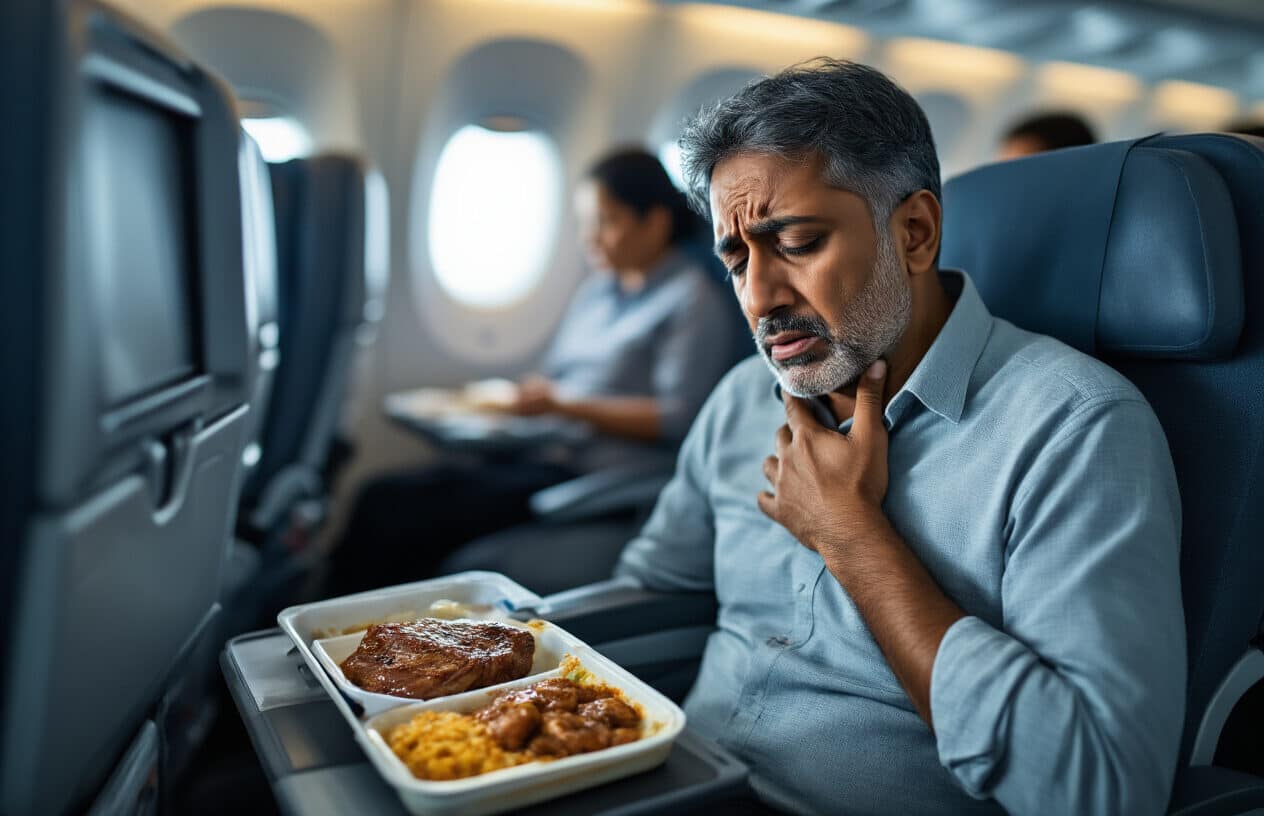
Passenger Profile and Flight Details
Dr. Asoka Jayaweera, an 85-year-old California-based cardiologist, became the center of a tragic Qatar Airways incident that would expose critical failures in airline passenger care. On June 23, 2023, Dr. Jayaweera embarked on what should have been a routine 15-and-a-half-hour Qatar Airways flight from Los Angeles to Colombo. As an experienced traveler and medical professional, he had taken all necessary precautions for his journey, including pre-ordering a vegetarian meal to accommodate his dietary requirements.
Pre-ordered Vegetarian Meal Not Provided
The Qatar Airways vegetarian meal incident began when the airline failed to honor Dr. Jayaweera’s pre-arranged dietary request. Despite having specifically pre-ordered a meat-free meal well in advance of his departure, the cabin crew informed the elderly cardiologist that no vegetarian options were available on the flight. This failure to provide the requested meal service represented a significant breach of the airline’s commitment to passenger care and dietary accommodation. Instead of the vegetarian meal he had ordered and expected, flight attendants presented Dr. Jayaweera with a standard meat-based meal, leaving him with limited dining options during the lengthy international flight.
Crew’s “Eat Around the Meat” Instruction
When faced with Dr. Jayaweera’s concerns about the meat-based meal, Qatar Airways flight attendants allegedly provided guidance that would prove to be tragically inadequate. The cabin crew reportedly advised the 85-year-old vegetarian passenger to simply “eat around” the meat components in the non-vegetarian meal. This instruction demonstrated a fundamental misunderstanding of both dietary restrictions and passenger safety protocols. The crew’s suggestion ignored potential cross-contamination concerns, the passenger’s religious or ethical dietary commitments, and the practical difficulties an elderly passenger might face in attempting to separate meat from other meal components during turbulent flight conditions.
Choking Incident and Medical Emergency Response
The airline passenger medical emergency unfolded shortly after Dr. Jayaweera attempted to follow the crew’s advice to “eat around” the meat in his meal. While attempting to consume the modified portions of the non-vegetarian meal, the elderly cardiologist began choking and subsequently collapsed mid-flight. The specific food item that caused the choking incident was not detailed in the legal complaint, leaving questions about whether the choking was related to the meal composition, preparation, or the passenger’s attempt to separate meat from other food components. This tragic sequence of events transformed what began as a simple meal service failure into a life-threatening medical emergency that would ultimately result in Dr. Jayaweera’s death, highlighting the critical importance of proper dietary accommodation and emergency response procedures in airline operations.
Medical Crisis Management and Emergency Response Failures
Immediate Crew Assistance and MedAire Contact
When Dr. Asoka Jayaweera began experiencing distress after consuming the meat-based meal, Qatar Airways crew members immediately recognized the severity of the situation. The flight staff quickly mobilized to provide assistance, demonstrating the airline’s standard emergency protocols for medical crises at altitude. Understanding the limitations of their own medical training, the crew made the critical decision to contact MedAire, a specialized medical consultation service designed specifically for in-flight medical emergencies.
MedAire serves as a vital lifeline for commercial aviation, providing real-time medical guidance to flight crews when passengers experience serious health complications during flight. Despite these immediate response efforts and professional medical consultation, Dr. Jayaweera’s condition continued to deteriorate rapidly, indicating the severity of his medical emergency and the challenges of managing such crises in the confined environment of an aircraft.
Inability to Make Emergency Landing
The gravity of Dr. Jayaweera’s situation presented Qatar Airways with one of aviation’s most difficult decisions: whether to attempt an emergency landing. However, the pilot determined that an emergency landing was not feasible under the circumstances. This decision reflects the complex considerations that flight crews must navigate during medical emergencies, including factors such as aircraft location, available airports, weather conditions, and the specific nature of the medical crisis.
The inability to execute an emergency landing meant that Dr. Jayaweera would need to receive medical care for the remainder of the scheduled flight duration. This situation underscores the critical importance of proper meal service protocols and the potentially life-threatening consequences when dietary restrictions are not properly managed during air travel.
Hospital Transfer in Edinburgh and Death Declaration
Upon the aircraft’s arrival in Edinburgh, Scotland, emergency medical personnel were standing by to provide immediate care. Dr. Jayaweera was rapidly transferred from the aircraft to a local hospital, where medical professionals could provide the advanced care that was impossible to deliver during flight. Despite the swift response and professional medical intervention available at the hospital, Dr. Jayaweera’s condition had progressed beyond recovery.
On August 3, 2023, medical staff at the Edinburgh hospital pronounced Dr. Jayaweera dead, marking the tragic conclusion of what began as a routine dietary accommodation request. This timeline highlights the rapid progression of his medical emergency and the limited window available for effective intervention once aspiration had occurred.
Aspiration Pneumonia as Cause of Death
Medical examination and subsequent reports identified aspiration pneumonia as the direct cause of Dr. Jayaweera’s death. This condition occurs when food particles, liquids, or other foreign materials are inadvertently inhaled into the lungs, leading to a severe lung infection. The diagnosis provides crucial insight into the mechanism by which the Qatar Airways dietary restriction failure led to this fatal outcome.
Aspiration pneumonia represents one of the most serious complications that can arise from choking incidents, particularly when food particles become lodged in the respiratory system. The condition can develop rapidly and proves especially dangerous in environments where advanced medical intervention is not immediately available, such as during commercial air travel. This medical determination serves as a key component in understanding how Qatar Airways’ failure to provide appropriate meal accommodations directly contributed to this passenger’s death.
Legal Action and Wrongful Death Lawsuit
Family’s Negligence Claims Against Qatar Airways
Following the tragic death of Dr. Asoka Jayaweera, his son Surya Jayaweera took decisive legal action by filing a comprehensive wrongful death and negligence lawsuit against Qatar Airways. The lawsuit, filed on July 31 in a California state court, centers on two critical allegations that form the backbone of the family’s case against the airline.
The primary negligence claim focuses on Qatar Airways’ failure to provide the pre-ordered vegetarian meal that Dr. Jayaweera had specifically requested for his international flight. This fundamental breach of service agreement created the dangerous situation that ultimately led to the fatal medical emergency. The family’s legal team argues that this failure represents a clear violation of the airline’s duty of care to its passengers.
The second major component of the negligence claims addresses Qatar Airways’ inadequate response to the medical emergency itself. The lawsuit alleges that once Dr. Jayaweera began experiencing distress after being told to “eat around” the meat in his meal, the airline’s cabin crew failed to provide appropriate medical assistance and made the critical decision not to divert the aircraft for emergency medical care.
Montreal Convention and Strict Liability Rules
The legal framework for this Qatar Airways vegetarian meal incident lawsuit operates under the Montreal Convention, an international treaty that establishes crucial protections for airline passengers. Both Qatar and the United States are signatories to this convention, making it the governing legal authority for this wrongful death airline lawsuit.
Under the Montreal Convention’s strict liability provisions, airlines bear automatic responsibility for passenger deaths or injuries that occur during international flights. This legal standard significantly strengthens the family’s position, as it eliminates the need to prove traditional negligence elements. Instead, the convention creates a presumption of airline liability, shifting the burden to Qatar Airways to demonstrate that the death was not caused by their actions or omissions.
The strict liability framework is particularly relevant in airline meal allergy incidents and dietary restriction failures, as it recognizes the airline’s fundamental responsibility to ensure passenger safety throughout the flight experience. This includes proper meal service and adequate emergency medical response when passengers face health crises.
Damage Claims and Compensation Sought
In their legal action against Qatar Airways, the Jayaweera family is seeking $128,821 in damages, which represents the minimum statutory amount established under the Montreal Convention. This specific damage amount is not arbitrary but reflects the convention’s standardized compensation framework for international airline passenger deaths.
The Montreal Convention establishes this baseline compensation to ensure that families of victims receive immediate, guaranteed financial relief without lengthy legal battles over damage calculations. While this amount may seem modest compared to typical wrongful death settlements in domestic courts, it represents the internationally agreed-upon minimum standard for airline liability cases.
The family’s decision to seek the statutory minimum suggests a strategic approach focused on establishing airline accountability rather than pursuing maximum financial compensation. This approach may expedite the legal process while still holding Qatar Airways responsible for the airline passenger medical emergency that resulted in Dr. Jayaweera’s death.
Allegations of Inadequate Medical Assistance
The most damning aspects of the lawsuit center on Qatar Airways’ alleged failures during the actual medical emergency. The complaint specifically targets the cabin crew’s inadequate response when Dr. Jayaweera began experiencing distress after consuming the meat-based meal he was instructed to “eat around.”
According to the family’s legal representatives, these emergency response failures contributed directly to Dr. Jayaweera’s death. The lawsuit alleges that trained cabin crew members failed to recognize the severity of the medical situation and did not provide appropriate first aid or medical intervention that could have prevented the tragic outcome.
Perhaps most critically, the complaint challenges Qatar Airways’ decision not to divert the aircraft for emergency medical care. This allegation suggests that even after recognizing Dr. Jayaweera was in medical distress, the airline prioritized flight operations over passenger safety. Such decisions are particularly scrutinized under international aviation law, as airlines have established protocols for medical emergencies that typically prioritize immediate access to advanced medical care over schedule adherence.
The family’s legal team argues that proper emergency protocols could have saved Dr. Jayaweera’s life, making Qatar Airways’ failure to follow these procedures a direct contributing factor to the vegetarian passenger choking death.
Qatar Airways’ Pattern of Dietary Restriction Failures
Jack Fowler’s Nut Allergy Incident on Same Airline
British reality TV star Jack Fowler experienced a life-threatening allergic reaction on a Qatar Airways flight to Dubai, nearly dying after being served a nut-containing chicken curry despite having a severe nut allergy. This alarming incident occurred just last year, making it particularly concerning given its timing relative to Dr. Jayaweera’s case. Even more troubling, Fowler had previously faced a similar scare with the same airline the year before, indicating a disturbing pattern of Qatar Airways’ failure to properly manage passengers with dietary restrictions and allergies.
The severity of Fowler’s reaction underscores the critical importance of accurate meal service, particularly when passengers have communicated life-threatening dietary restrictions. His case demonstrates that Qatar Airways’ dietary restriction failures extend beyond vegetarian meal requests to encompass serious medical conditions requiring strict adherence to passenger specifications.
Recurring Issues with Special Dietary Requests
Now that we have covered the specific incidents, the pattern becomes clear regarding Qatar Airways’ systemic issues with dietary accommodations. The incident involving Dr. Asoka Jayaweera is not an isolated case, which reignites the ongoing debate about how airlines handle dietary restrictions and special meal requests. These recurring Qatar Airways dietary restriction failures suggest deeper operational challenges within the airline’s meal service protocols.
The documentation of multiple incidents across different types of dietary needs – from severe nut allergies to vegetarian requirements – indicates that Qatar Airways faces significant challenges in properly implementing and executing special dietary accommodations. This pattern of failures raises serious questions about the airline’s training procedures, communication systems between ground services and flight crews, and overall commitment to passenger safety regarding dietary needs.
Qatar Airways’ Response and Investigation Cooperation
Following these incidents, Qatar Airways has expressed condolences to the affected families and is fully cooperating with authorities in the ongoing investigation. The airline’s public response demonstrates awareness of the gravity of these situations and recognition of their responsibility in these matters.
The cooperation with investigative authorities represents a crucial step in understanding the root causes of these dietary restriction failures and implementing necessary corrections to prevent future incidents.
Commitment to Review Internal Procedures
With this in mind, Qatar Airways has committed to reviewing its internal procedures to prevent similar incidents in the future and has reiterated its commitment to passenger safety. This commitment to procedural review suggests recognition that current systems may be inadequate for handling special dietary requests safely and effectively.
The airline’s pledge to examine internal procedures encompasses various aspects of meal service operations, from initial booking and dietary request processing to meal preparation, labeling, and service delivery. This comprehensive review approach is essential given the multiple points of failure that can occur in the dietary accommodation process, as evidenced by the recurring nature of these incidents involving different types of dietary restrictions.
Industry-Wide Implications for Airline Safety Standards
Critical Importance of Honoring Dietary Restrictions
With this in mind, next, we’ll examine how the Qatar Airways vegetarian meal incident has exposed critical gaps in airline safety protocols that extend far beyond a single carrier’s failures. The incident underscores the critical importance of airlines adhering to passengers’ dietary preferences, especially for those with health or religious restrictions. This tragic case demonstrates that what might appear as a simple meal service issue can escalate into a life-threatening emergency when proper protocols are not followed.
Airlines worldwide must recognize that dietary restrictions are not merely passenger preferences but essential safety considerations. The failure to provide appropriate meals or suggesting passengers “eat around” unsuitable ingredients creates unnecessary health risks that can have fatal consequences during long-haul flights where medical intervention options are severely limited.
Medical Emergency Protocol Deficiencies
Now that we have covered the dietary aspect, the Qatar Airways emergency response failures reveal systemic deficiencies in medical emergency protocols across the aviation industry. It highlights the need for robust medical emergency protocols on long-haul flights and raises serious concerns about in-flight safety and service accountability.
The incident exposes how inadequate emergency preparedness can transform a preventable situation into a medical crisis. Airlines must ensure their crews are equipped not only with proper medical equipment but also with comprehensive training to handle various emergency scenarios that may arise from dietary-related incidents or other health complications during extended flights.
Accountability Issues in Long-Haul Flight Safety
Previously, we’ve seen isolated incidents, but this case brings broader accountability concerns to the forefront. The ongoing legal proceedings raise significant questions about accountability in long-haul flight safety. The airline passenger medical emergency protocols must be thoroughly examined to prevent similar tragedies from occurring in the future.
This wrongful death airline lawsuit establishes important precedents regarding airline responsibility for passenger welfare throughout the entire flight experience, from meal service to emergency medical response. The case challenges the industry to reconsider existing safety standards and implement more stringent accountability measures.
Need for Strengthened Industry Standards and Prevention Measures
This case could prompt airlines worldwide to strengthen their safety standards and implement preventative measures to ensure such tragedies are not repeated. The aviation industry must move beyond reactive responses to establish proactive prevention protocols that address the root causes of such incidents.
Airlines need to develop comprehensive training programs that emphasize the critical connection between dietary accommodation and passenger safety. Furthermore, enhanced medical emergency equipment and protocols specifically designed for long-haul flights should become industry standards rather than optional upgrades. The implementation of these measures requires coordinated efforts across the industry to ensure consistent safety standards regardless of the carrier or route.
The tragic death of Dr. Asoka Jayaweera exposes critical failures across multiple levels of airline operations, from basic meal service protocols to emergency medical response procedures. This case demonstrates how a seemingly minor oversight—failing to provide a pre-ordered vegetarian meal—can cascade into life-threatening consequences when compounded by inadequate emergency protocols. The fact that similar incidents, such as Jack Fowler’s near-death experience with Qatar Airways due to undisclosed allergens, continue to occur suggests systemic issues that extend beyond isolated mistakes.
The lawsuit filed under the Montreal Convention sends a clear message to the aviation industry: airlines must be held strictly liable for preventable deaths that occur due to operational negligence. As legal proceedings unfold, this case has the potential to reshape industry standards for dietary accommodation, crew training, and medical emergency response protocols. Airlines worldwide must recognize that passenger safety encompasses not just mechanical reliability, but also the fundamental obligation to honor dietary restrictions and respond effectively to medical crises—failures that can prove fatal at 35,000 feet.
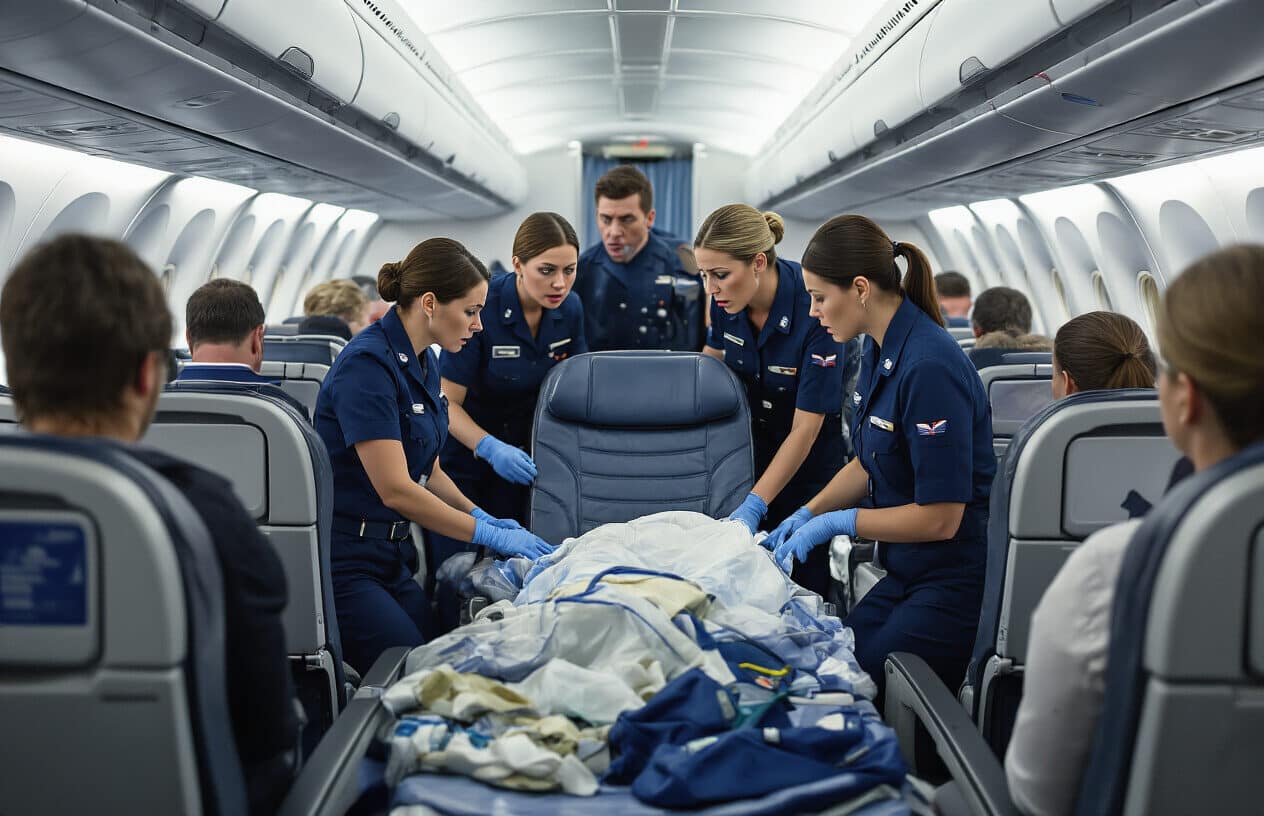

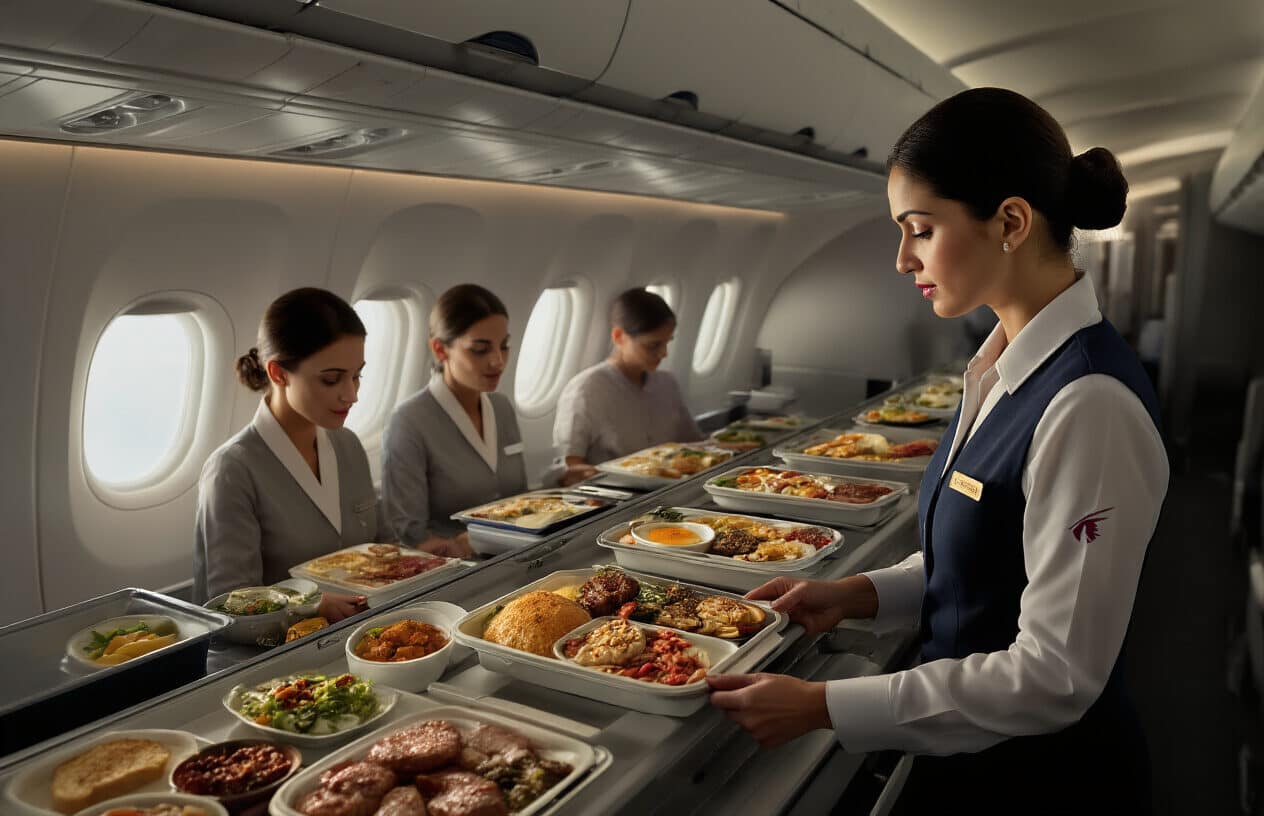
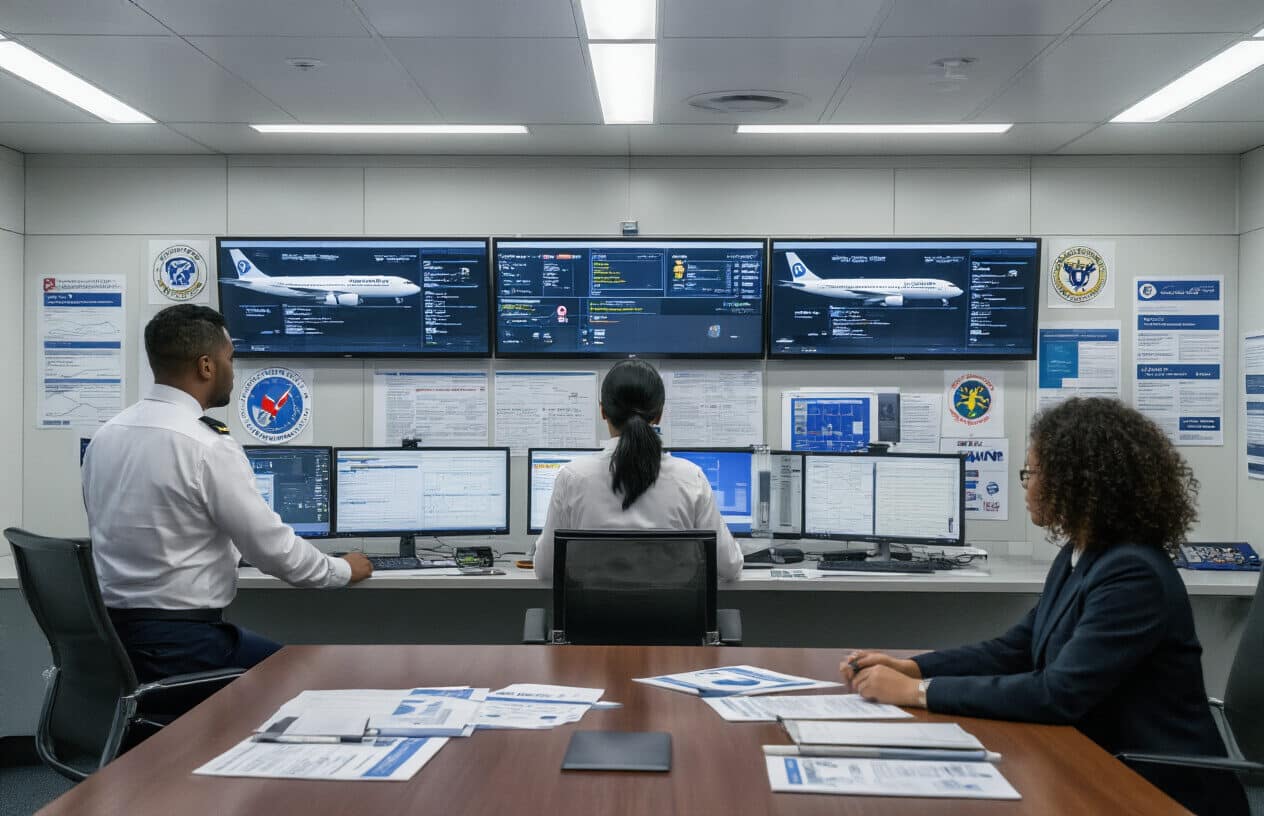
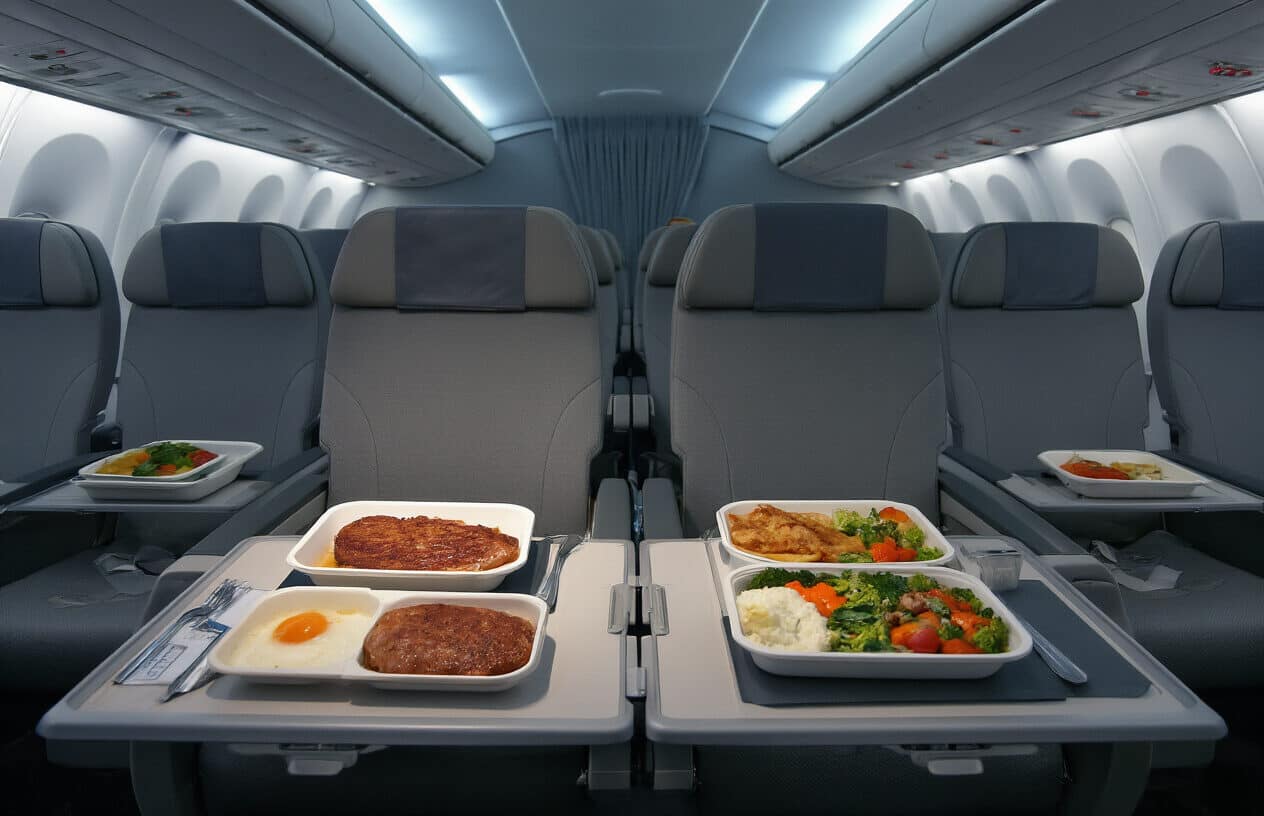






1 thought on “Qatar Airways Vegetarian Passenger Chokes To Death After Being Told To ‘Eat Around’ Meat-Based Meal”